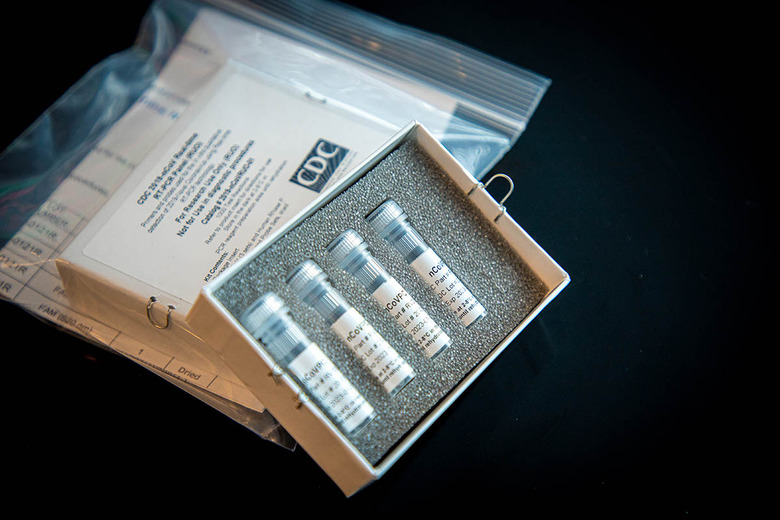FDA: Q-Tip-Style Swab Could Cut Coronavirus Test Risk
A new type of Q-type style swab for coronavirus testing could be a breakthrough for COVID-19 diagnostics, and pave the way for at-home tests that might reduce the workload of stressed healthcare providers. A shortage of the special sample-taking swabs currently used in most COVID-19 tests is one of the key bottlenecks preventing more widespread testing.
What could alleviate that is a new type of spun synthetic swab, which has been developed by U.S. Cotton. Resembling a Q-tip cotton bud, but using a polyester tip that's fully compatible with COVID-19 testing, it has a big advantage in that it can be produced in large quantities using the company's existing manufacturing facilities.
One of the biggest barriers in the way of more widespread COVID-19 testing – and at-home testing in particular – is the nature of sample collection. Most diagnostics currently in use require a throat or nasal swab be taken from either deep in the throat or sinuses. It's uncomfortable to perform, and comes with significant coronavirus spread issues too.
A common side-effect of deep nasal swabs, for example, is a sneeze reflex being triggered. That demands a healthcare provider wear comprehensive personal protective equipment (PPE) like face masks in order to avoid potentially infectious droplets, at a time when such equipment is in short supply.

These new Q-tip style swabs come alongside a clinical investigation into alternative locations that they could be used on. Specifically, it allows the sample to be collected from the front of the nose, not deep in the sinuses. In turn, "it allows self-collection by patients thereby limiting exposure of healthcare providers" as well as being more comfortable to take.
The study was led by the UnitedHealth Group, Quantigen, and the Gates Foundation, in collaboration with the FDA. "We appreciate the work of these collaborators to consider how these test supplies could be broadly distributed to meet not only the testing needs of the United States but also global needs around the pandemic," Stephen M. Hahn, M.D., FDA Commissioner, said in a statement.
It's not the only COVID-19 testing breakthrough we've seen in recent days. Earlier this week, Rutgers announced it had developed a coronavirus diagnostic that works with saliva as its primary test biomaterial. That avoids swabbing altogether.
At-home tests for the coronavirus could end up becoming an important part of broader measurement for the disease's scale, but enabling that in a safe and foolproof way is taking some time. The FDA confirmed earlier in the week that it was working with test developers on at-home kits, but warned that concerns around safely collecting samples, along with packaging them and shipping them in a stable way, was holding up the process.
